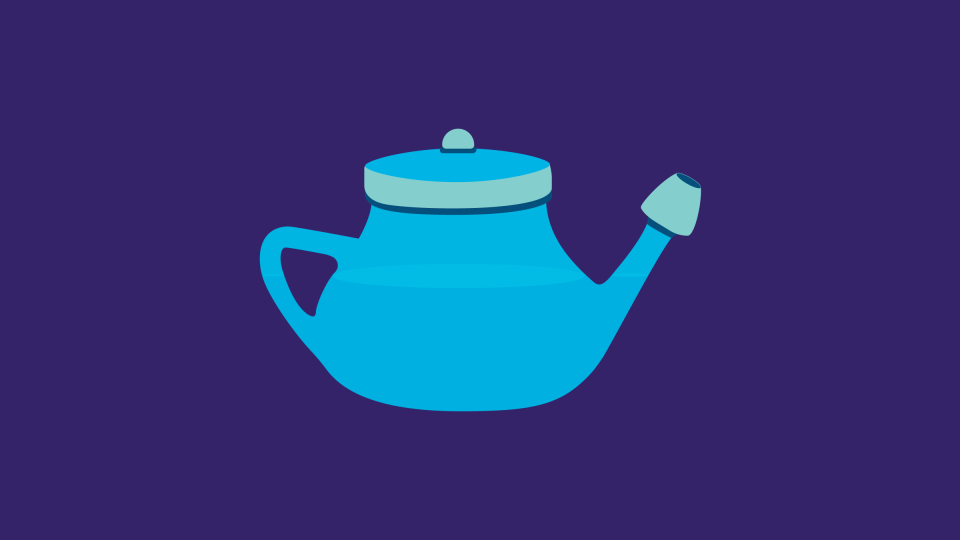Use a Neti Pot? No, You Probably Won’t Get a Brain-Eating Amoeba.

You probably heard about a recent cringe-worthy news story detailing how a local woman died from a rare brain-eating amoeba after using a neti pot.
While it sounds like the premise of a science fiction (or horror) movie, it’s very real — and has happened before.
The dangers of amoebas
Amoebas are single-celled, shape-changing organisms that pull themselves around by extending little feelers. There are specific types of amoebas that pose a risk to humans, such as Naegleria fowleri, which infects the brain, and other amoebas that can infect the colon or cornea.
While amoebas are scary, the good news is that they’re rare. Between 2008 and 2017, there were only 34 reported cases of amoebic infection in the United States, according to the Centers for Disease Control and Prevention.
Amoebas like to hang out in fresh still water, and if one comes in contact with the fragile mucous membrane in your nose, the amoebas can pass right through into your brain, which is likely how the Seattle woman contracted the infection.
The danger is in the nasal mucosa specifically, says John Lynch, M.D., M.P.H., an infectious disease specialist and medical director of the infection control program at Harborview Medical Center. Simply coming into contact with an amoeba in other ways, like drinking or touching amoeba-infested water, won’t make you sick because the amoeba has no way of getting into an area of your body where it can harm you.
Basics of neti pot safety
Enter the neti pot. Neti pots can be helpful sinus irrigation tools for people who suffer from chronic sinus problems such as rhinitis or sinusitis.
If you’re someone who uses a neti pot, that recent story might have you on edge. Should you continue to use it and, if so, how do you know that you’re using it safely?
Neti pot safety is pretty simple and easy to do, Lynch says. The main points: Keep your neti pot clean by washing it after each use, and only use sterile distilled or saline water to actually rinse your sinuses with (so, no tap water unless you boil it first and then let it cool).
“If you do that, there’s really no danger to using a neti pot,” Lynch says.
Another thing to keep in mind is that people who have a medical condition that weakens their immune system may be at greater risk and should be extra careful that they’re fully cleaning a neti pot and using sterilized water.
Amoebic infections are rare
There are other ways for a brain-eating amoeba to get up your nose, though they’re all rare. Occasionally, people contract amoebic infections by swimming in fresh water or an untreated swimming pool, or going to a spa or hot spring and somehow getting water up their nose.
Amoebic infections are even rarer in the Pacific Northwest, where we don’t have a lot of warm standing pools of water, Lynch says.
Cold, rainy weather for the win.

 Healthy ideas for your inbox
Healthy ideas for your inbox





